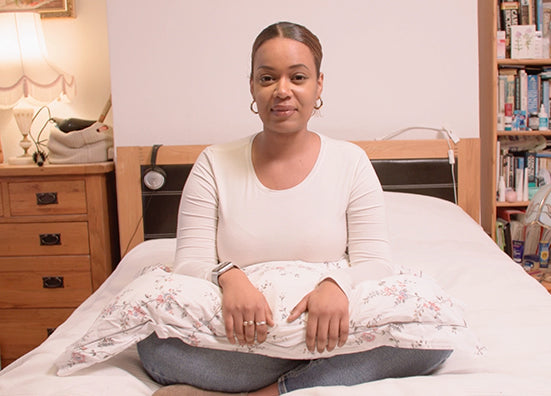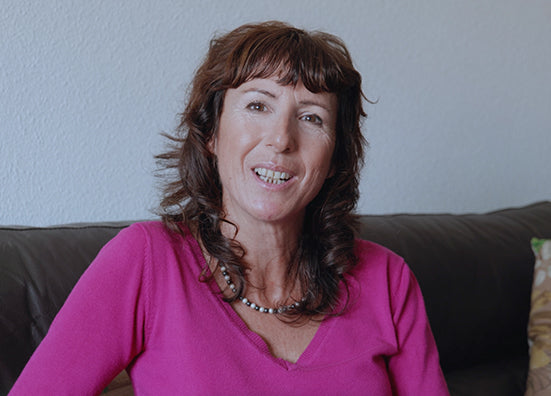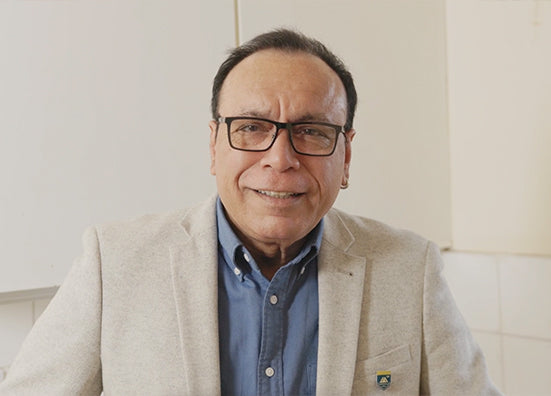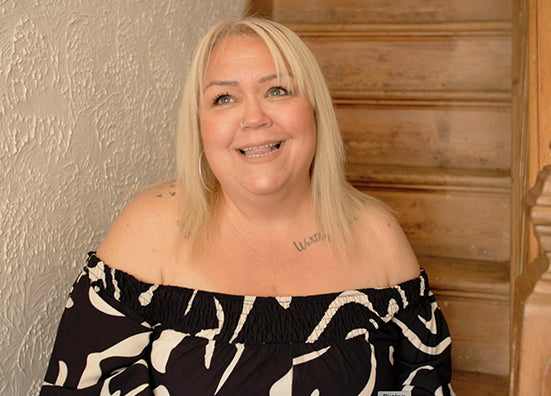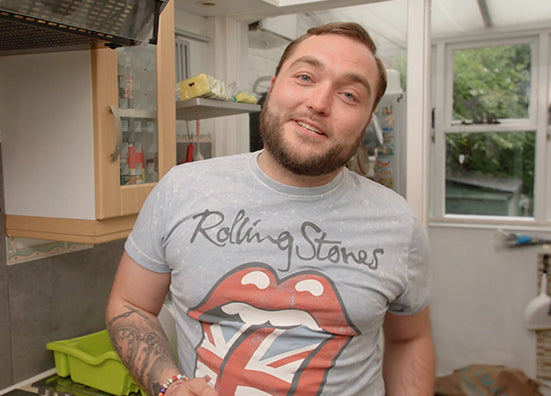
The sixth session in our Kid’s Wellbeing Essentials Package is ‘Enjoy Learning for Kids’. To discuss this topic a little more I sat down with parenting coach, Dominique Olivier.
Terri: Dominique, could you give us some insight into the challenges parents face when it comes to helping their children enjoy learning?
Dominique: Absolutely. One of the biggest challenges parents face is how they go about creating a positive learning environment that encourages curiosity and engagement, but that doesn't make their child feel like they're being tested all the time. Kids are naturally curious, but pressure from parents and teachers can sometimes stifle that curiosity and shut it down. Then they end up jumping through hoops to impress us with what they know, instead of learning because they love exploring and filling their minds with cool things.
Terri: That's so true. I remember how tempting it was to ask my kids to tell me the answers to questions to prove that they knew something when they were small. How can we foster a child's love of learning early on without putting too much pressure on them to master specific skills like ABCs and 123s?
Dominique: The key is to integrate learning into everyday experiences in a natural, organic way. Instead of making it feel like a chore or an obligation, make learning a part of your child's daily life. For example, when they're jumping, count the jumps with them. When you're shopping, point out the colors of items in the store. By doing this, you actually turn everyday situations into fun, interactive learning opportunities that don't feel forced or stressful.
Terri: I love that approach! Can you share some more examples of how we can integrate learning into our children's daily lives without it being too obvious or forced?
Dominique: Yeah, of course. You can use mealtimes to talk about shapes, sizes, and colors of different fruits and vegetables. When you're at the park, talk about anything cool you come across, the plants, insects, animals. Encourage them to ask questions and explore their curiosity. The goal is to create an environment where learning is a fun, enjoyable, and natural part of your child's everyday life, rather than something that feels imposed or pressurized. A personal pet peeve is the way parents tend to use children's questions as an opportunity to quiz them and make them figure something out, when they really just want an answer. It might sound odd, but think how many times a kid will say something like 'mom, what's 7 plus 5?' and we'll respond by saying 'well, what do you think it is? Can you work it out?'. Yes, I'm sure they can, but would you make your partner do the same thing if they asked you for a quick answer to something? That's often a good measure of how we're talking to our kids...would we say the same thing to our partner or any other adult we trust? If we wouldn't, let's not say it to our kid either. If my partner calls out 'hey, what date it is today?' I am not going to make him figure it out if I know the answer. I'm just going to TELL him. I try to remember to do the same thing with my kid.
So, there's a fine line between encouraging natural learning in our environment and making our kids jump through unnecessary hoops just so we can feel like we're doing our part to teach them something.
Terri: Oh wow...yes...that is so true! We do that all the time with kids and you're right, it would really annoy me if another adult did that to me when I needed a quick answer to something! Thank you for clarifying that for me...I'm going to pay attention to that with my son from now on.
Ok, now I have a question about the dreaded homework...how do we help kids tackle it and learn to do it on their own in the best way?
Dominique: Well, it's really important for parents to be patient and understanding themselves....do you remember how soul sucking it felt to have a pile of homework in front of you after an already stressful day? Show your child how to break down their tasks into smaller, more manageable steps (thereby teaching them some essential life skills) and encourage them to take a lot of breaks. You can even help them figure out some small rewards they can give themselves whenever they finish one piece...like a 10 minute break to watch some TV, or have a snack or something.
Terri: Yes, that always helps me when I'm trying to get something done!
So, what role does emotional intelligence play in a child's ability to enjoy learning, and how can parents nurture this skill? It sounds like you really advocate being kind and thoughtful towards our children...I'm sure this helps them develop those skills themselves, right?
Dominique: Absolutely! Emotional intelligence is really essential in helping children navigate the ups and downs of the learning process. Parents can encourage it by modeling it themselves, and teaching their child to recognize and express their emotions, as well as empathize with others. If you as an adult tend to have harsh or intense responses to things, for example, do some work on learning how to regulate yourself and have them witness you going through the process. You can even model responding to something difficult in a way the child recognises and can copy. For example, if you're playing a game with them and they usually have a hard time losing, you can say something when it's your turn like 'oh boy...I really hope I win...I can feel myself getting really anxious about it. Ok, Ok, I'm going to take a deep breath and remember that it's fun to play and I'm going to be alright if I don't win." Then you take a deep breath and visibly calm down. The next time your kid is beginning to feel that way they are likely to remember watching you make yourself feel better and have that tool at their disposal.
Terri: Amazing...yes, I can really imagine that helping! It's really incredible how much they take in that we don't think they are watching or learning anything! I think we need a whole interview about emotional intelligence!
Dominique: Yes, let's do that at some point soon...I would love to discuss that with you.
Terri: Wonderful, thank you! In the meantime, how important do you think it is it for children to have a balance between structured learning and free play? So many schools seem to be starting the teaching process younger and younger...
Dominique: It's really important. Structured learning helps children develop important skills, but free play encourages creativity, problem-solving, and social development. Children learn incredibly well through playing, so look for environments or schools where that is recognised and kids aren't pushed too early to attain the skills that they'll actually find easier to pick up later on. You want a good mix, ideally, but definitely an emphasis on play for younger years.
Terri: Ok, that's what I thought too, and what I have tried to find with schools for my kids. Next question...how can parents help their children develop resilience and perseverance when they're at school and trying to learn difficult things? My 8 year old, for example, really hates handwriting and gets frustrated really fast when he can't get it just right.
Dominique: Well, again, parents can model resilience by talking about their own experiences with overcoming challenges ("when I was at school I used to hate writing too, but I just kept practicing and it got easier and easier! Now I love to write") and and also letting their kid watch them get frustrated, but recover. You can choose something that your child knows you find difficult...let's say, trying to get your front door open if your arms are full of groceries. Next time your child is watching you do it, make it obvious you're having a hard time. Say some of the things you know your child says to themselves, like "ugh, I can NEVER do this. It's so annoying and I really want to just give up and sit here all day instead!". Then purposefully stop and say quietly to yourself "Ok, hang on...take a deep breath. I know I can do this, I just probably need to put the groceries down and try it again". And then you calm yourself down and try again. This is invaluable learning for your child.
Terri: Yes, I can really see that! Lastly, what advice do you have for parents whose kids might not get frustrated so fast, but are just really struggling to enjoy learning?
Dominique: Be patient and persistent, and remember that fostering a love for learning takes time and effort. Keep the lines of communication open with your child and their teachers, and be prepared to adapt your approach based on your child's unique needs and interests. Most importantly, provide a supportive and encouraging environment where your child feels safe to explore, make mistakes, and grow. One of the things we like to do in our house is talk openly and happily about one way we know we failed during the day, and what we learned from it. We do it as a family, so we can also model being totally OK with having not always got things right, and what the valuable thing is that we've learned as a result...the thing we might not have learned if we hadn't failed.
Terri: Thank you so much, Dominique, for sharing your wisdom and insights with us. I truly appreciate your compassionate approach to helping children and their parents navigate the challenges and joys of learning!
Dominique: You're very welcome, it's been a pleasure discussing this with you. I know that every child can flourish academically and personally with the right support and encouragement.
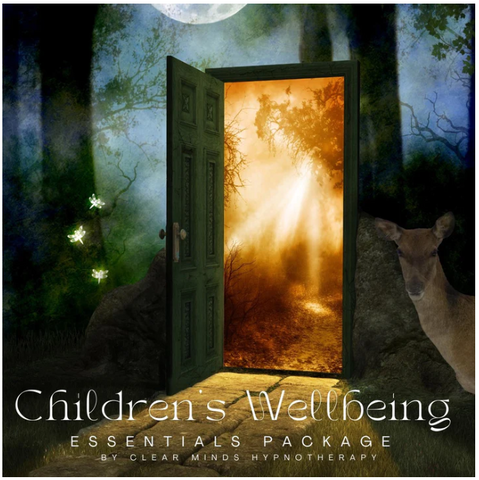
The 'Enjoy Learning Hypnotherapy Session for Kids' is one of the sessions offered in the Children's Wellbeing Essentials Package. It is designed to help children develop a positive mindset towards learning through the use of guided relaxation and positive suggestions. The session helps children to associate learning with feelings of enjoyment and fulfillment and can be a valuable tool for parents looking to support their child's love of learning.










